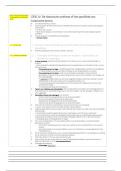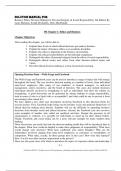Samenvatting
Samenvatting verplichte hoofdstukken uit het boek History of Political Theory
Een beknopte maar toch volledige samenvatting van alle verplichten hoofdstukken (op twee hoofdstukken na; Rousseau & Hegel) uit het boek History of Political Theory van Klosko. Aantekeningen van de hoorcolleges (Nederlands) vind je hier: https://www.stuvia.nl/doc/489702/geschiedenis-van-het-politie...
[Meer zien]











